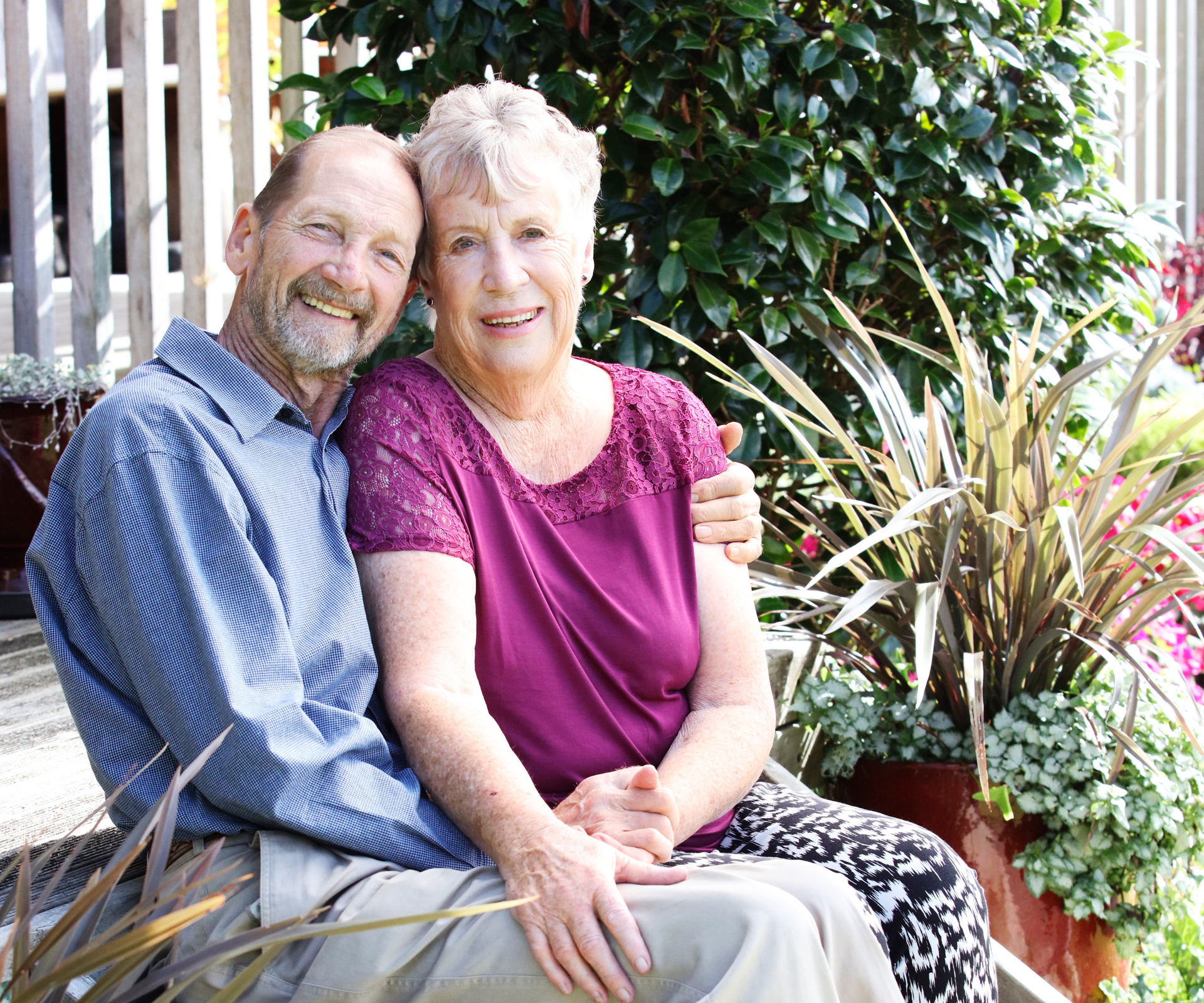After 58 years of marriage, listening to her husband Denis describe their first date brings tears to Ann Wilson’s eyes.
They met at a dance in Derbyshire and the handsome young man asked her out to see the stately home Chatsworth House.
She knew then and there that he was “the one”.
“We both like old things,” she explains, as she sits at her dining room table in her Helensville home, with tears welling in her eyes.
It’s not the memories, but watching the intelligent, witty man across from her struggling to get the words out that’s breaking Ann’s heart.
Dementia is robbing her of her soulmate.
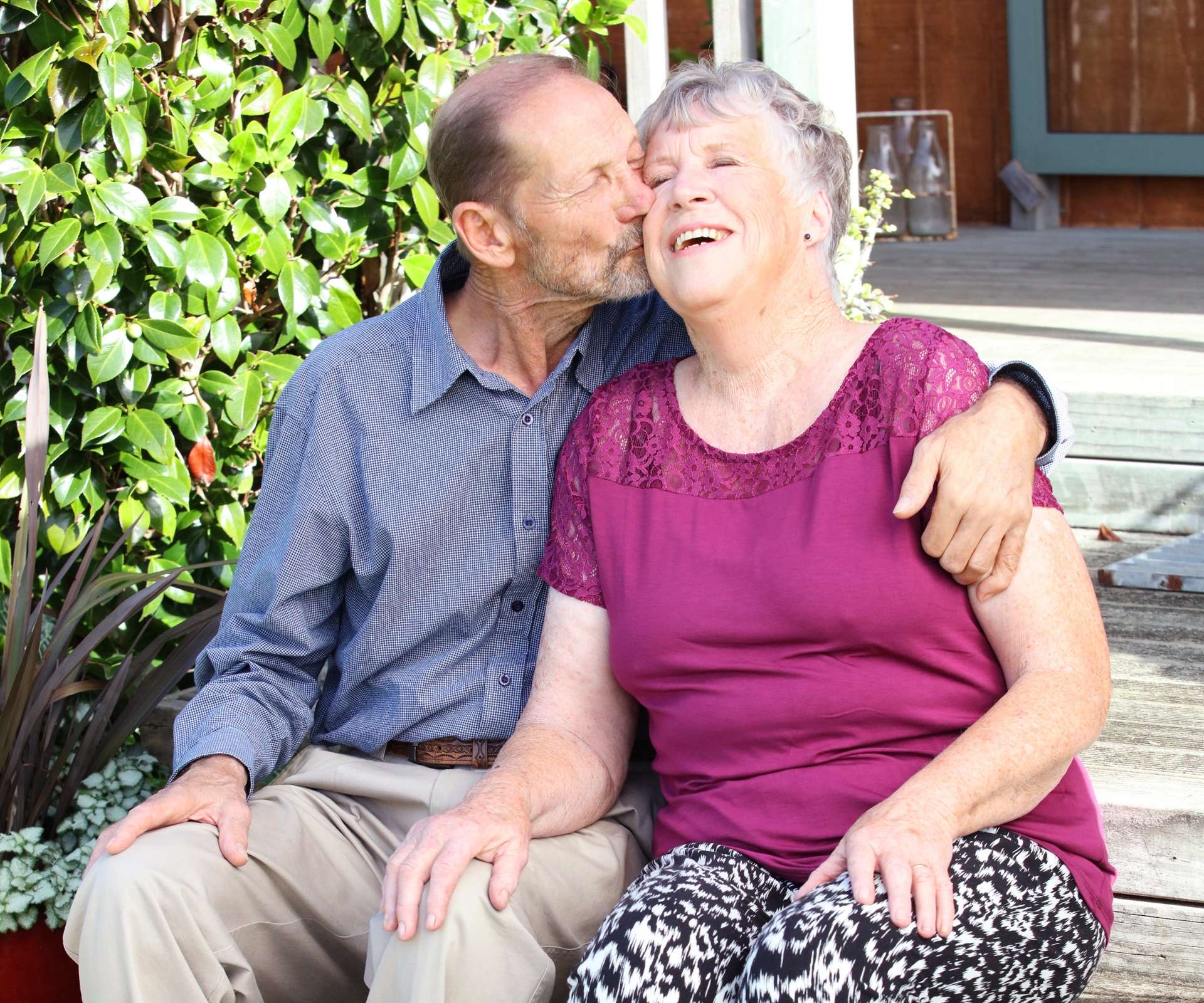
“One day, you’re in deep despair or infuriated, the next you feel guilty because its not his fault. It enrages you when you cannot reason with the person you have loved for all those years and you watch them vanish,” Ann tells.
According to Alzheimers New Zealand, an estimated 60,000 Kiwis have dementia, with the number expected to grow to over 150,000 by 2050. For every one of those people, there are family and friends also affected.
For Denis (78) the diagnosis came two years ago, but Ann (77) says symptoms began to show as far back as eight years ago.
When the retired building inspector was called back to his old job for some casual work, he kept taking the wrong motorway exits each time and there were subtle changes at home.
“It sounds funny, but he started leaving the toilet seat up,” Ann tells. “I’d heard wives complain about their husbands, but Denis would always put the seat down. It’s become our saying now – the children ask is it a ‘toilet seat up or down day?’ to describe our good and bad days.”
Ann says today has been a good day.
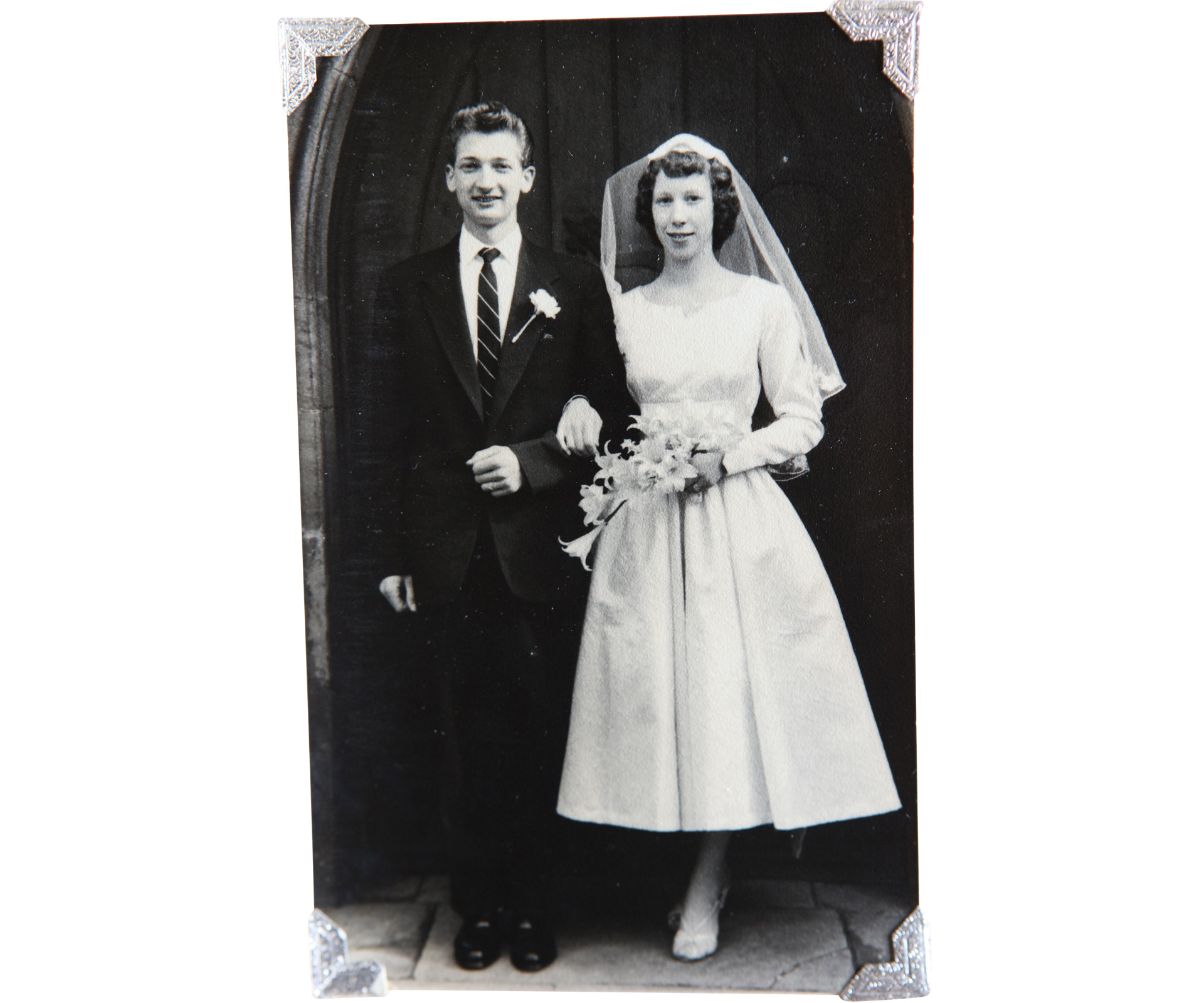
On their wedding day
Denis enjoys talking about the home he built for the family in West Auckland and points at photographs of his family, although he struggles to remember his eldest daughter’s name at first.
Tracey (55) was very young when the couple immigrated to New Zealand, and Ann was pregnant with Sean (52), who now lives in Parakai. Richard (47) and Catherine (44) were both born in New Zealand. As he flicks through his wedding album, he tries to explain what is going on in his brain.
“It comes on and it’s down here, then it‘s up here,” he says, gesturing to the path a thought will take throughout his mind as he tries to grasp it.
“I realise, I didn’t want to do this, I wanted to do that,” he tells. “I’ll fall on the ground or in to the water – it reduces my ability.”
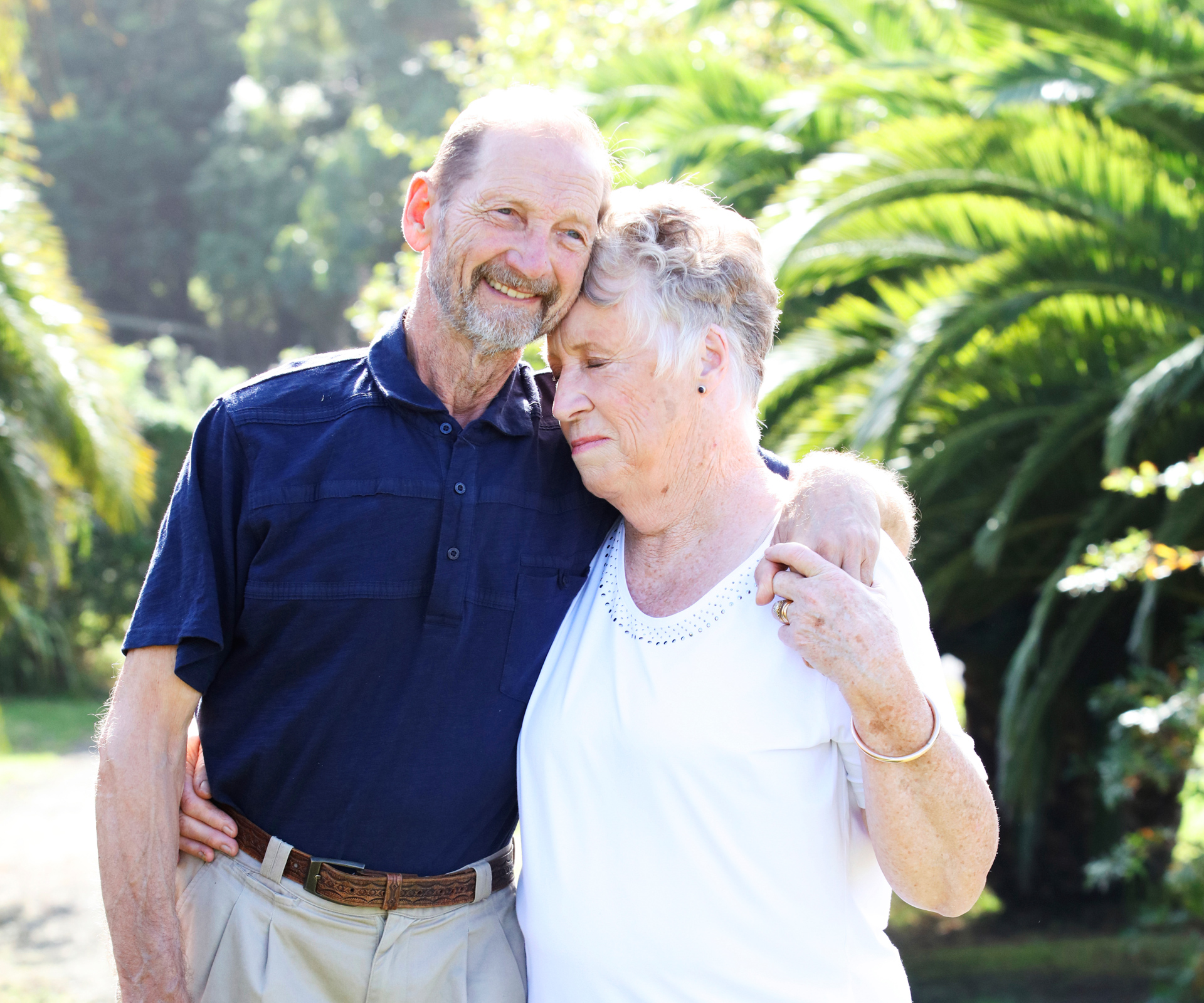
Ann now battles to reason with the man she’s loved for years.
A hard worker and neat-freak, Denis enjoys doing the dishes and vacuuming. Ann often finds small unusual piles he’s made from old trays and recycling. Some mornings, he makes his own breakfast of porridge and fruit, and spends a whole day on a gardening project. But there are others when he will become paranoid, angry and frustrated.
Ann warns not to mention the word “car” after her husband had his licence taken off him.
In Denis’ mind, Ann has poisoned the doctors’ minds against him.
“When we have an argument, he’ll stand at his bedroom door and point his walking stick at me. He’ll tell me that he hates me and that I’m the worst woman in New Zealand.
“I’m terrified because he’s never had a temper. I have had to sleep with a chair behind my door,” Ann explains. “The next day, he’s all over me like a rash – he couldn’t live without me.
“It’s a huge roller coaster and I hate roller coasters.”
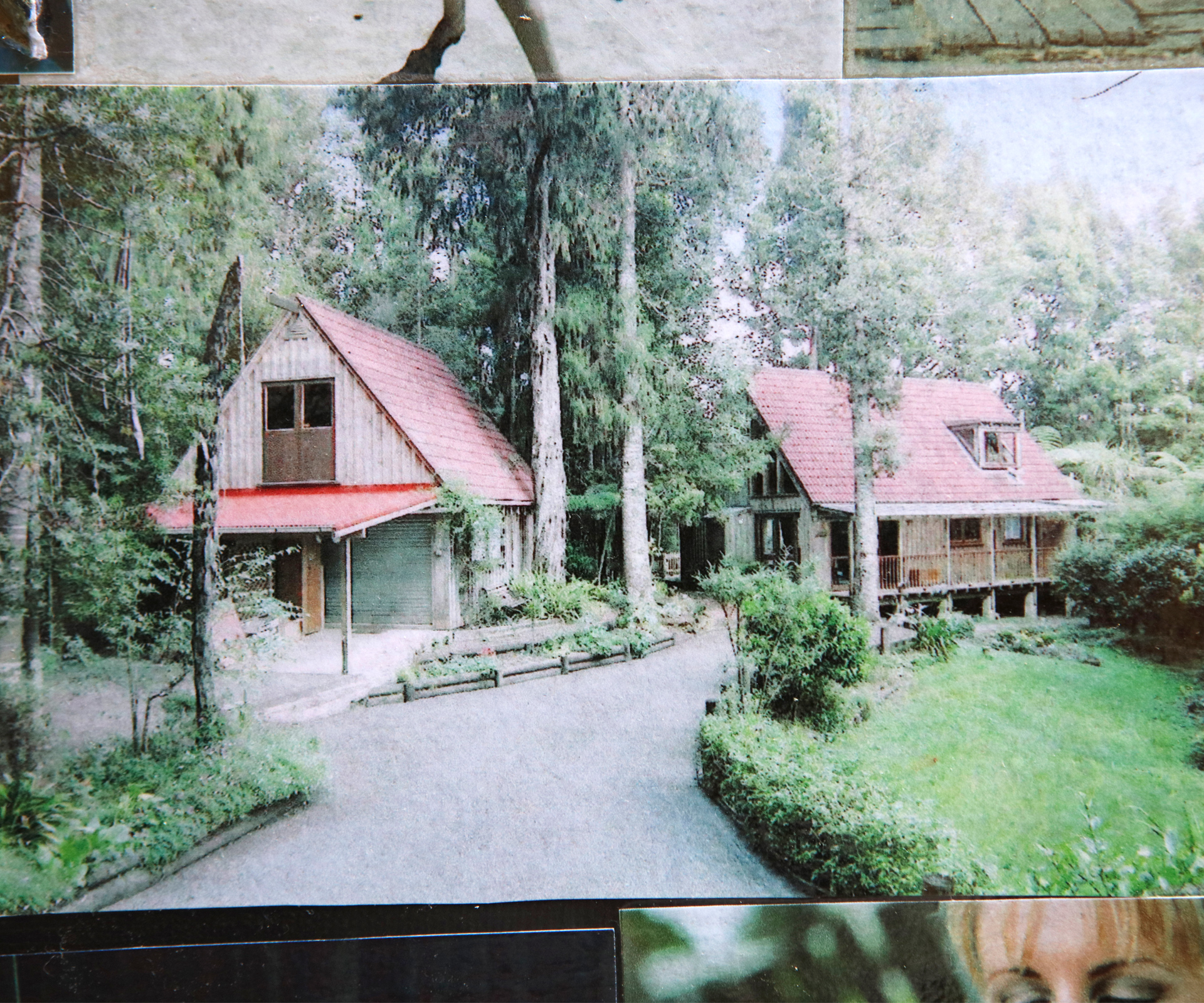
The house Denis built for his family.
While Denis hasn’t wandered off the property, Ann has to hide keys and locks, which he’ll smash open with a crowbar.
She rushes to the mail box so Denis doesn’t get there first and put the mail in the rubbish bin. She’s had to stop him building a bonfire and the sound of power tools going off in his toolshed terrifies her.
“He keeps asking my son to borrow his mulcher, but I don’t want him anywhere near it – he might put his hand down it,” she says. “He collects swords and has a shot gun, but I hid the bullets a year ago.”
Denis’ type of dementia is familial.
Ann hopes that like his two sisters, her husband won’t require care and can stay in their home for a long time yet. But she admits the past four months in particular have felt like a “nightmare”.
Since Christmas, Denis’ condition has gotten worse and now there are more bad days than good.
“I would only think about the rest home if I felt threatened physically, but he’s a lovely man,” she says, tears flowing. “What I miss is teasing each other, we would do that every day, and talking about politics. He loves rugby and cricket, but now he says they’ve changed the rules.”
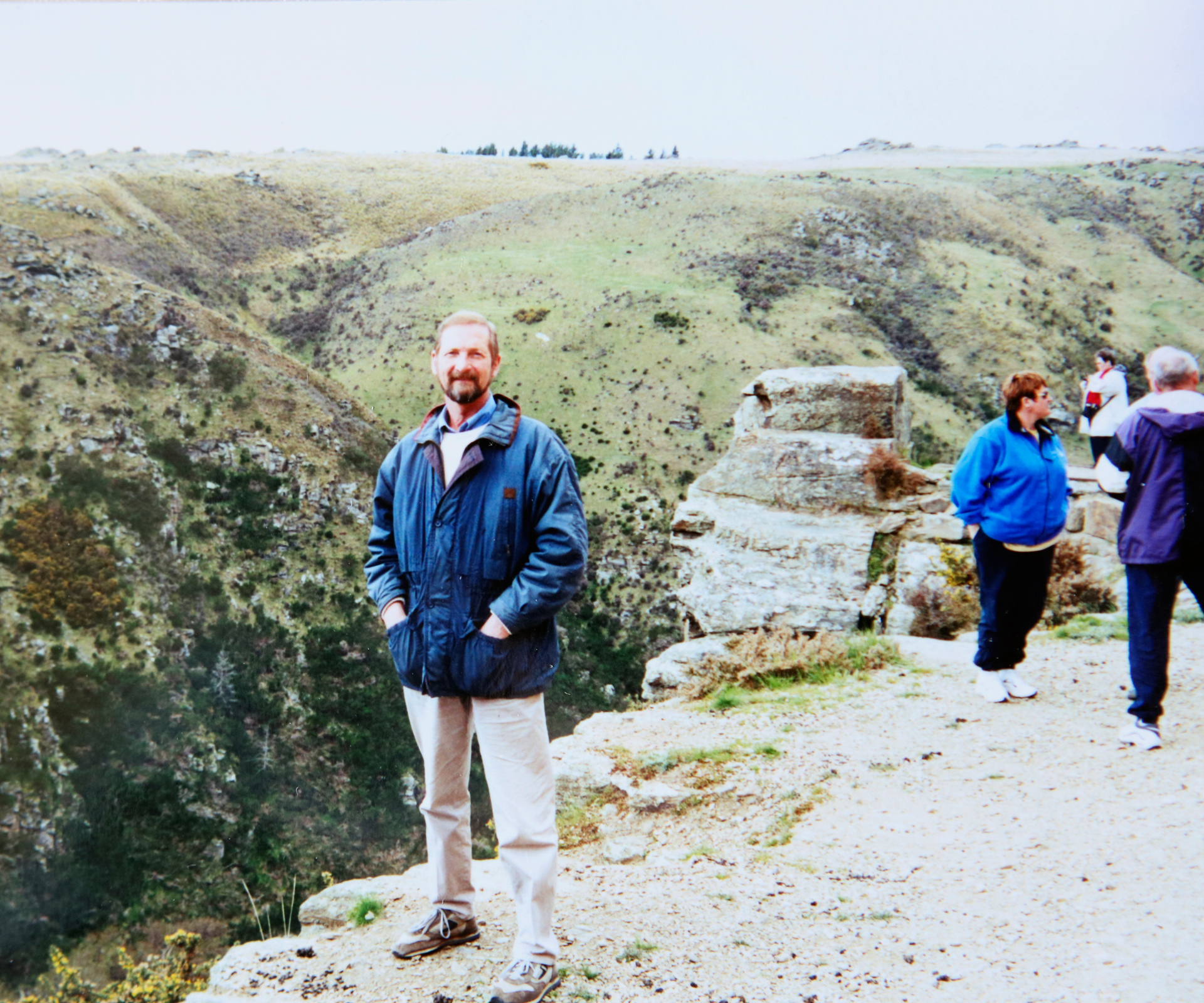
The father-of-four when he was fit and young.
Ann says she’s been lucky to have a neighbour who can watch Denis while she takes time out each week. But with her neighbour now set to move from their close-knit community, Ann wants to start a support group for others who are going through the same thing with their spouses.
“I question what I’m doing all the time. There is a lot the books don’t tell you and some of the advice doesn’t help,” Ann says.
“What’s the point of telling me to put a list up on a cupboard when Denis doesn’t know what a cupboard is sometimes? They say to walk away from an argument, but Denis has followed me through two paddocks yelling – and that’s without his walking stick.”
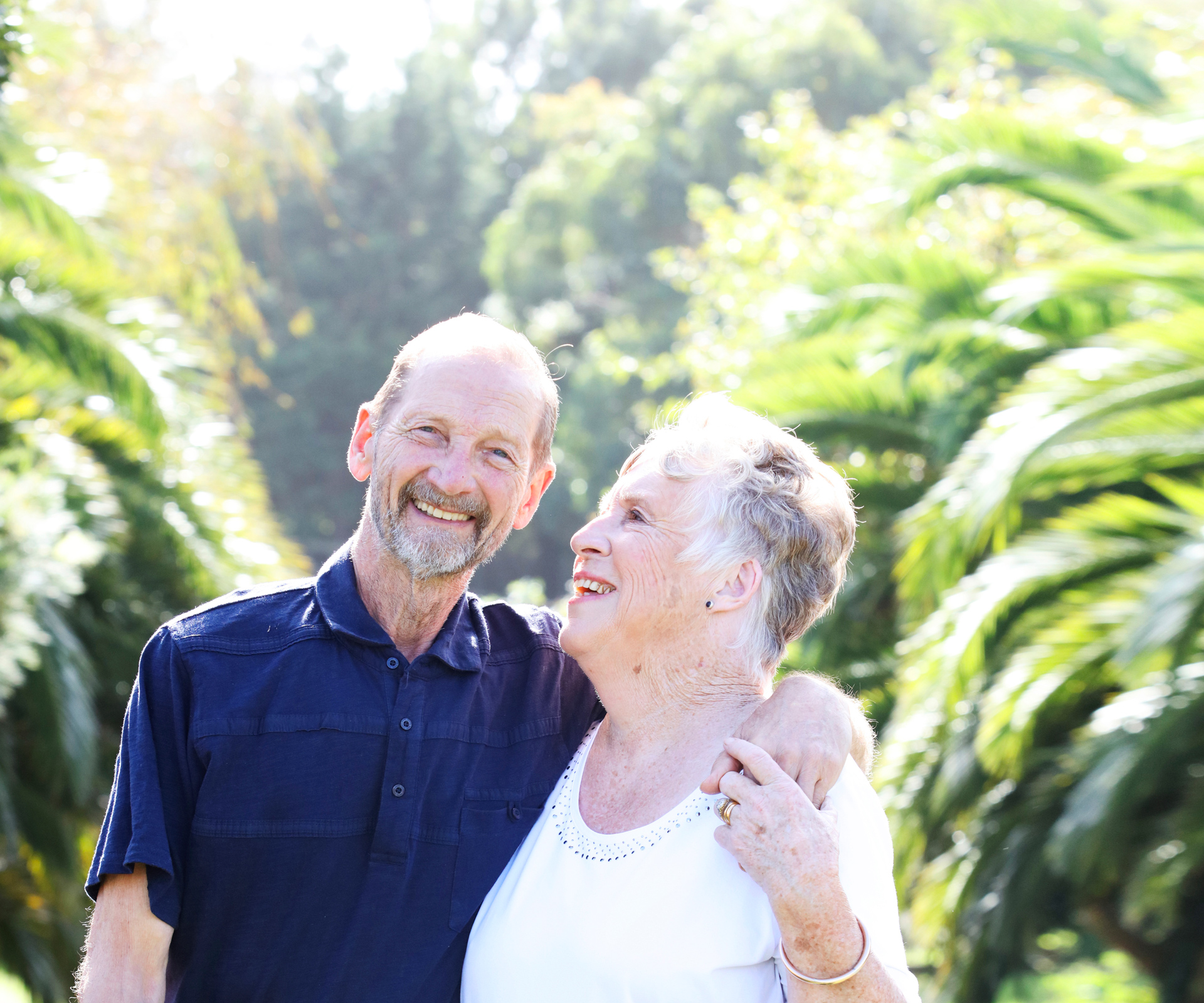
Ann’s love for the man she met all those years ago is still strong.
Sitting on the front steps, they share a kiss and indeed a laugh.
“He is in there,” Ann says with the tears still in her eyes. “Look at his lovely hands and his smell – it’s him. I do love you,” she turns to tell him.
“I love you too,” he replies.
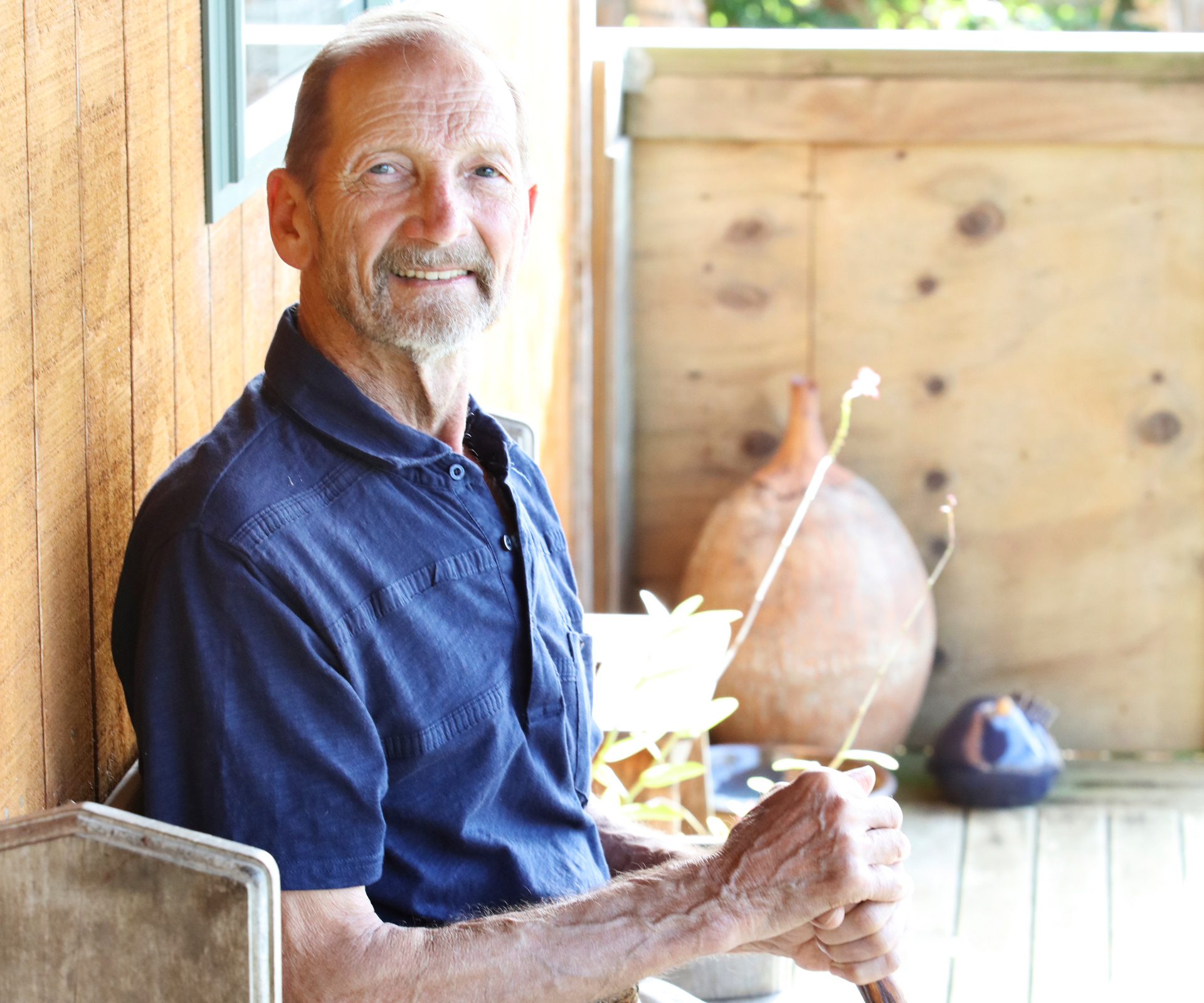
Warning signs of dementia include:
Recent memory loss that affects daily life
Difficulty performing regular tasks
Problems with language
Disorientation of time and place
Decreased or poor judgment
Problems with abstract thinking
Loss of initiative
Difficulty relating to others
Changes in mood and behaviour
Misplacing things
For more information, contact Alzheimer’s organisation on 0800 004001 or visit alzheimers.org.nz
Words: Anastasia Hedge
Watch: Dance class triggers dementia patient’s memory
